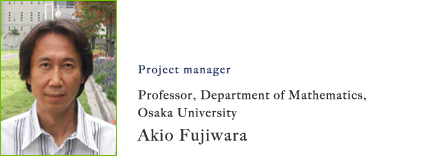- 01 (2010 Selected):
- New development of quantum estimation theory in quantum cybernetics

Quantum estimation theory is a branch of noncommutative statistics that addresses the problem of finding the best estimation procedure for an unknown quantum object by a physically feasible measuring process. The main objective of the present research is to demonstrate several fundamental results of quantum estimation theory by means of quantum optical experiments, putting emphasis on its usefulness and applicability in quantum information science and technology.
We first realize an adaptive quantum estimation scheme for an unknown quantum state. In general, the optimal estimator (measurement) depends on the true state that is to be estimated. Such a paradoxical situation is surmounted by an adaptive estimation scheme as follows: one begins with a certain initial guess and applies the measurement that is optimal at that state. One then applies the maximum likelihood method to obtain the next guess, and repeat this procedure until the estimator converges. Since this procedure enjoys the strong consistency and asymptotic efficiency, it is expected that the adaptive estimation scheme will supersede the conventional estimation procedures, such as the quantum tomography, that are not at all efficient. We carry out the first experimental demonstration of an adaptive quantum estimation scheme that is optimal in view of quantum estimation theory.
We next demonstrate some recent developments in quantum channel estimation theory: for example, a novel quantum effect for unitary gates which asserts that one can obtain O(n2) information about an unknown unitary gate when n identical copies of the gate are available. We further explore a theory of estimating perturbed quantum channels, and devise an algorithm for finding an optimal quantum estimator based on the convex programming.
Details : 「Publications」













